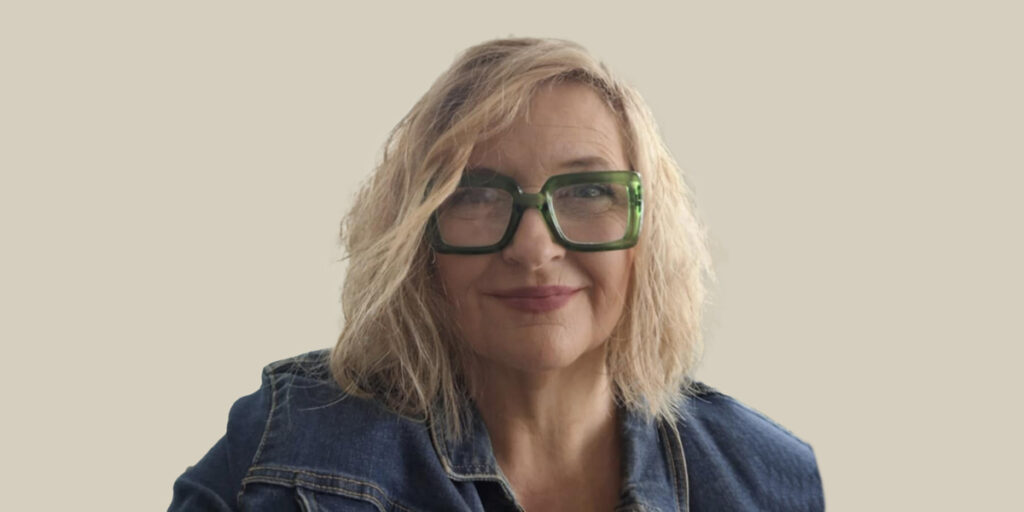How mātauranga leads to better support for mōrehu.

Marianne is our Auckland kairuruku (co-ordinator) for Sexual Violence Court Support, supporting whānau who are survivors of sexual violence to navigate the criminal justice system. In December 2024, she completed her four-year Ngā Poutoko Whakarara Oranga Bicultural Social Work degree at Te Wānanga o Aotearoa in order to gain a deeper knowledge of Te Ao Māori.
“As a pākehā, I felt it was vital to have a deeper understanding of Te Ao Māori practices to better support survivors of sexual abuse,” she explains. “It certainly helps me connect with clients, because they are often expecting to see a Māori face when they engage with Te Whare. Once I explain how I practice, they relax!”
As a Sexual Violence Support Worker, Marianne’s role is to guide mōrehu (survivors) as they navigate the Criminal Justice System in Tāmaki Makaurau. “Unfortunately, the system often re-victimises survivors,” she says. “Our process at Te Whare is unique – we try to engage with survivors as early as we can, and we walk alongside mōrehu and their whānau for as long as is needed.”
“As a pākehā, to walk in those Te Ao Māori spaces and to be gifted so much of that knowledge is a true honour.”
Supporting survivors, guiding whānau
Marianne says she supports the whole whānau, not just the person who has experienced sexual violence. “I’ll pick them up and take them to court, and I offer them grounding techniques like karakia and a kete – a kind of survival kit – to help calm their nerves. I created these kits alongside rongoā practitioners and other kaimahi here, and our clients often tell us how much they help.”
She supports her clients before, during and after the Court process, including writing victim statements. “The Court process is a big part of their healing journey, and they need support throughout it. I also connect them to counselling or other practitioners, and I just hold them until they’re ready to engage in those other services,” she says.
Marianne believes that having time to build up a strong relationship with wāhine makes a real difference. “For example, I was supporting a young woman who was struggling to write her impact statement. Because I knew her well – and I knew her whānau and her marae, I took her to a beach nearby.”
“It was a very moving experience,” she recalls. “As we walked and talked, and as she cried and cried, the sea mist came in around us – then as she settled, the sea mist just disappeared. We talked about how her tipuna (ancestors) had come to surround her in her time of real grief. Then she just poured out her story to me and I recorded it. Having the time and space to be able to tell her story in her own way was really crucial, and it was incredibly empowering for her.”
Another of Marianne’s clients, a much younger wahine, is still going through the court process. “Fortunately, I received her referral early in her journey – her court case is not for a couple of years,” she explains. “That’s given us time to work through Te Kawa o te Marae, our unique kaupapa Māori wellbeing framework. In the first week, we worked through her pepeha and her whakapapa. She was very disconnected from her identity as a Māori wahine – and that disconnection has been part of the harm she’s experienced over many years.”
“We worked through it in a really safe way, with no shame, just planting those seeds,” explains Marianne. “It enabled her to go home to her koru at Christmas and learn more about who she was. She came back so excited that a door has been opened enabling her to reconnect to who she is. That has been massive – a real integral part of her healing.”
“Having the time and space for my client to be able to tell her story was really crucial, and it was incredibly empowering for her.”
“My role is a real privilege”
“As with any role, there are challenges,” Marianne acknowledges. “One of those is the timing of referrals. Sometimes they arrive just a day before, making it difficult to establish a meaningful relationship with clients. It’s not ideal for mōrehu.” She adds, “That said, it’s amazing that funding has been allocated for roles like mine. I can clearly see the positive impact it’s making.”
Despite these challenges, the rewards of her mahi far outweigh any difficulties. “Healing is a lifelong journey and walking alongside people through that process is a real privilege. So far, I’ve only worked with wāhine and just to see them reclaiming their autonomy as to who they are – something that has been stolen from them – it’s hugely gratifying to be part of that process.”
Reflecting on her degree, Marianne believes it has absolutely made a difference. “As a pākehā, to walk in those Te Ao Māori spaces and be entrusted with so much knowledge is a true honour. I never take it for granted and I never claim my knowledge and understanding as my own. It has deepened my ability to practice with whānau in a way that is culturally appropriate. Even for my non-Māori clients, it makes my practice more holistic.”
“Healing is a lifelong journey and walking alongside people through that process is a real privilege.”
